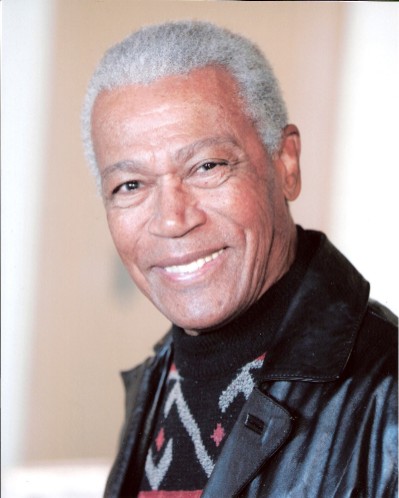Johnny Pate was born Dec 5, 1923 in Chicago Heights, Illinois. He is an arranger and bassist who learned his skills during World War II service in the 218th AGF Army Band. He was discharged in 1946 and played in Coleridge Davis’ bigband. From 1947 to 1949, he worked with the jazz violinists StuffSmith and Eddie South. Johnny continued his musical education while performing with South. He studied at Chicago’s Midwestern Conservatory between 1951 and 1953. He was a member of Dorothy Donegan’s Trio from 1953 to 1954 and then moved on to the Ahmad Jamal Trio, 1956. Johnny was also an arranger for Club De Lisa’s production numbers. These numbers were inspired by the Cotton Club reviews from Harlem. Joe Williams, a young man, was the main male singer on the show. Johnny and Joe became lifelong friends. Johnny often claims that he met Joe before Count Basie knew him. Pate was the Blue Note’s house band leader at the close of the 50’s. He worked alongside such legends as Ella Fitzgerald Sarah Vaughan, Duke Ellington and others. Johnny was Jimmy Woode’s bassist at the Blue Note. Johnny took ill and ended up being Woode’s substitute. Johnny didn’t know that Duke or any other Ellington musicians had made a bootleg recording. It was eventually released in 1994 to Johnny’s delight. You can hear Duke recognize Johnny after his solo on Satin Doll. Johnny was a bassist in his own band on the Federal, King, Gig, Salem, MGM and MGM labels. He also wrote and played the bass on James Moody’s 1958 Argo album, Last Train From Overbrook. This album was his last as a bassist. He had to give up his role as an arranger and conductor as well as producer of jazz albums. Johnny produced and arranged several albums in the 1960s, including Wes Montgomery’s Movin’ Wes and Shirley Horn’s travelin’ light on the ABC-Parmount labels. The latter featured two of Pate’s songs, “Have You Tried To Forget?” and “Yes, I Have Had It.” Johnny produced Sum Serious Blues on Milestone in 1993. It features Marlena Shaw’s vocals. Johnny ventured into rhythm and blues at the request from Carl Davis, a record producer who wanted to give h9s recordings by “doo-wop”. Johnny suggested adding brass to the backup arrangements. Major Lance’s “Monkey Time” was the first recording. It became a huge R.
